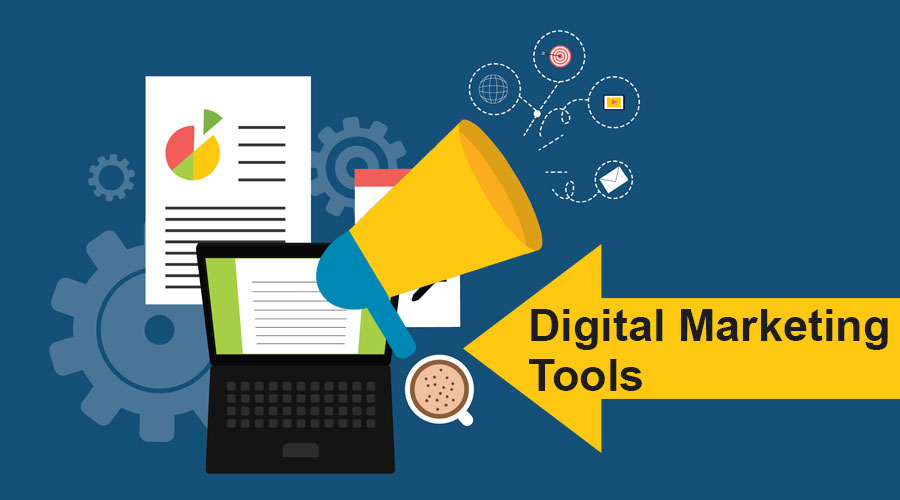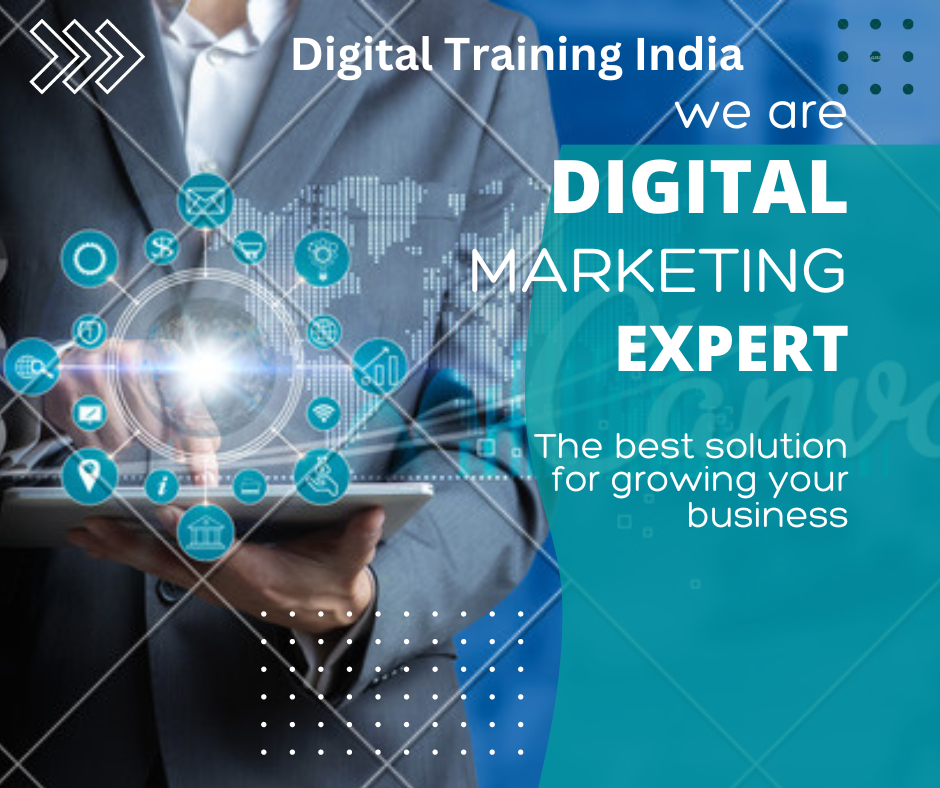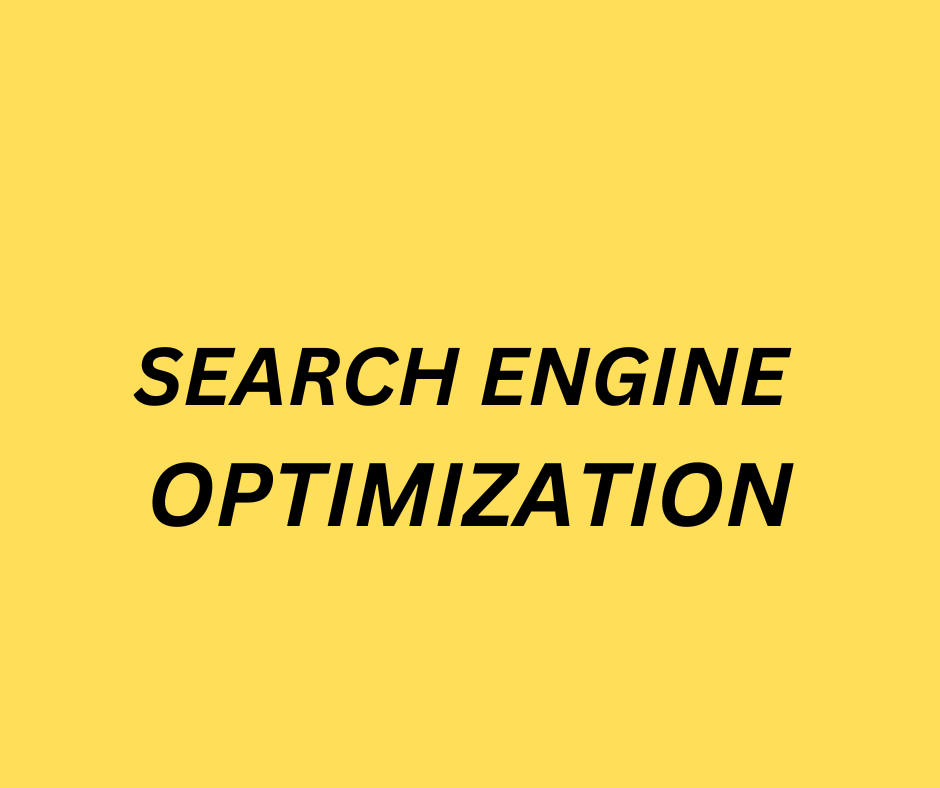what is SEO
WHAT IS SEO
SEO, or Search Engine Optimization, is a digital marketing strategy aimed at increasing the visibility and ranking of a website or webpage in search engine results pages (SERPs). The goal of SEO is to attract more organic (non-paid) traffic to a website by optimizing various aspects of the site to align with search engine algorithms.
SEO, or Search Engine Optimization, is a digital marketing strategy aimed at increasing the visibility and ranking of a website or webpage in search engine results pages (SERPs). The goal of SEO is to attract more organic (non-paid) traffic to a website by optimizing various aspects of the site to align with search engine algorithms.
SEO involves a combination of on-page and off-page tactics to improve a website’s search engine ranking. These tactics include:
- Keyword Research: Identifying relevant keywords and phrases that potential visitors might use to find the website’s content.
- On-Page Optimization: Optimizing the content, HTML code, and structure of individual web pages to make them more relevant to specific keywords and improve their visibility to search engines. This includes optimizing title tags, meta descriptions, headings, and image alt attributes.
- Content Creation and Optimization: Creating high-quality, valuable content that addresses the needs and interests of the target audience. Content should be optimized for target keywords and structured in a way that makes it easy for search engines to crawl and index.
- Technical SEO: Ensuring that the technical aspects of the website, such as site speed, mobile-friendliness, crawlability, and site architecture, are optimized for search engines.
- Link Building: Acquiring high-quality social media from other reputable websites to improve the website’s authority and credibility in the eyes of search engines.
- Local SEO (for local businesses): Optimizing the website for local searches to improve visibility in local search results, such as Google Maps and local business listings.
- Monitoring and Analysis: Monitoring the website’s performance in search engine rankings, traffic, and user engagement metrics, and making adjustments to the SEO strategy based on data and insights.
HOW TO LEARN SEARCH ENGINE OPTIMIZATION
By implementing effective SEO strategies, businesses can increase their website’s visibility, attract more qualified traffic, and ultimately, achieve their marketing and business objectives. SEO is an ongoing process that requires continuous monitoring, optimization, and adaptation to changes in search engine algorithms and user behavior.and digital training india
What is Email Marketing and benefits
what is email marketing
Email marketing is a digital marketing strategy that involves sending emails to a group of people or subscribers with the aim of promoting products, services, or building relationships. It’s a highly effective method for businesses to connect with their audience, drive sales, and increase brand awareness by digital marketing in delhi
Email marketing campaigns can vary in their goals, such as:
Promotional Emails: These are used to promote specific products, services, or offers to encourage recipients to make a purchase.
Transactional Emails: These are automated emails triggered by specific actions, such as a purchase confirmation, shipping notification, or password reset.
Newsletters: Regularly scheduled emails that provide valuable content, updates, and news to subscribers. Newsletters are often used to engage and nurture relationships with subscribers.
Welcome Emails: Sent to new subscribers to introduce them to your brand, set expectations, and encourage further engagement.
Re-engagement Emails: Sent to inactive subscribers to try to re-engage them with your brand or encourage them to update their preferences.
benefits of email marketing
Email marketing offers a range of benefits for businesses of all sizes and industries. Some of the key advantages include:
Cost-Effective: Compared to traditional marketing channels like print or television advertising, email marketing is relatively inexpensive. There are often no printing or postage costs, and email marketing platforms typically offer affordable pricing plans.
High ROI: Email marketing consistently delivers one of the highest returns on investment (ROI) among digital marketing channels. According to various studies, the average ROI for email marketing is around $42 for every $1 spent.
Targeted Audience: Email marketing allows businesses to segment their audience based on factors like demographics, location, behavior, and interests. This segmentation enables businesses to send targeted and personalized messages that are more relevant to each subscriber, increasing engagement and conversion rates.
Increased Sales and Conversions: By delivering relevant and timely offers to subscribers, email marketing can drive sales and conversions. Whether it’s promoting new products, offering discounts, or sending abandoned cart reminders, email campaigns can encourage recipients to take action.
Builds Relationships and Trust: Regularly communicating with subscribers through email helps businesses build and nurture relationships with their audience. Providing valuable content, exclusive offers, and personalized recommendations can help establish trust and loyalty over time.
Measurable Results: Email marketing platforms offer robust analytics and reporting tools that allow businesses to track the performance of their campaigns in real-time. Metrics like open rates, click-through rates, conversion rates, and revenue generated provide valuable insights into campaign effectiveness and areas for improvement.
Increases Brand Awareness: Consistent communication with subscribers keeps your brand top of mind. Whether it’s through newsletters, promotions, or updates, email marketing helps reinforce brand identity and awareness among your audience.
Overall, email marketing is a powerful tool for businesses to engage with their audience, drive sales, and achieve their marketing objectives effectively and efficiently with digital training india
description
Ultimate Benefits of Doing SEO on any Website
What is SEO
SEO stands for Search Engine Optimization. what is SEO It refers to the process of optimizing a website to improve its visibility and ranking in search engine results pages (SERPs) for relevant keywords and phrases. The primary goal of SEO is to increase organic (non-paid) traffic to a website by making it more accessible and appealing to search engines like Google, Bing, and Yahoo. SEO involves various techniques and strategies aimed at optimizing different aspects of a website, including its content, structure, HTML code, and backlink profile. These optimizations help search engines better understand the relevance, authority, and user experience of a website, which in turn, influences its ranking in search results. Increased Organic Traffic: By optimizing your website for search engines, you improve its visibility in search engine results pages (SERPs). This increased visibility leads to higher organic traffic as more users discover and visit your site.
Multiple Benefits of SEO
- Improved User Experience: SEO Course in Delhi SEO involves optimizing various aspects of your website, such as site speed, mobile-friendliness, and user interface, to enhance the overall user experience. A well-optimized website provides users with a smooth, seamless browsing experience, leading to higher engagement and satisfaction.
- Better Conversion Rates: Optimizing your website’s content and structure for search engines often aligns it more closely with users’ search intent. This targeted approach can attract high-quality traffic that is more likely to convert into leads, sales, or other desired actions.
- Cost-Effectiveness: Compared to paid advertising and other marketing channels, SEO offers a cost-effective way to attract organic traffic to your website over the long term. While it requires an initial investment of time and resources, the ongoing benefits can outweigh the costs in the long run.
- Builds Credibility and Trust: Websites that rank higher in search results are often perceived as more credible and trustworthy by users. By optimizing your website and consistently providing valuable content, you can establish your authority in your industry and build trust with your audience.
- Competitive Advantage: In today’s competitive online landscape, having a strong SEO strategy can give you a competitive edge over rivals in your industry. By outranking competitors in search results, you can capture more market share and attract customers away from competitors.
- Measurable Results: SEO provides access to various analytics and tracking tools that allow you to measure the performance of your efforts accurately. You can track key metrics such as organic traffic, keyword rankings, and conversion rates to evaluate the effectiveness of your SEO strategy and make data-driven decisions for improvement.
- Long-Term Sustainability: Unlike some marketing tactics that yield short-term results, SEO is a long-term strategy that can continue to deliver benefits over time. By consistently optimizing your website and staying updated with best practices, you can maintain and even improve your search engine rankings for the long haul. Digital Training India
- Adaptability to Algorithm Changes: Search engines frequently update their algorithms to deliver more relevant and high-quality search results. By staying informed about these changes and adapting your SEO strategy accordingly, you can ensure that your website remains resilient to algorithm updates and continues to perform well in search results.
How to do email Marketing & Get start with Digital Training India Ultimate guide
 1.What is email marketing .
1.What is email marketing .
Email marketing is a digital marketing strategy in which a business sends commercial messages,promotional content, or newsletters to a target audience.The communication aims to develop a relationship with customers by generating
brand awareness, promoting products or services, and generating more sales.Email marketing involves sending emails to customers or hopefullyto be customers. When done correctly, it can create strong brandrelationships and reinforce existing brand awareness.
 2. Why Use Email Marketing.
2. Why Use Email Marketing.
Email marketing is a powerful digital marketing strategy.That involves sending targeted and personalized emails to a specific audience to promote products and services.It allows businesses to communicate directly with their customers & share valuable content,and product actions like sales.
 3.How to use it.
3.How to use it.
First of all build your costumer email list. Without a list, you can not send your campaigns.And then pick an email service provider mail service provider great email marketing services offer Tools and templates that allow you to break your list up by market and analyzing critical stats.we are suggest some Email service provider. Mailchimp.com, Banchmark Email, Mailjet,Sendpulse,Ext.Once you have your list and Email Service Provider, it comes down to automation and analysis.Your ESP will let you set up autoresponders.They translate to more profit for less work.
 4. What are the benifits of Email Marketing.
4. What are the benifits of Email Marketing.
One of the primary benefits of email marketing is its ability to drive customer engagement by sending targeted and relevant content to your subscribers and interact with your brand and ultimately lead to higher click-through rates, website visits, and social media.

Digital Marketing Latest Tools
Digital Marketing Course
Digital Marketing is everyone’s requirement for getting highly paid and rank on top or get better results and be in the demand of the public like famous brands, Due to this every day, every month all the sites and apps are upgraded and newly launched for better versions and extra variations for work. Every person who is using technology can relate and understand that nowadays AI captures everything in every field, especially in the writing field. For today’s generation’s needs and the fastest technology, every marketer demands the best version of tools cause tool makers are upgrading their tools, launching and introducing new tools. Digital marketing also dispenses more tools and upgraded versions of older tools. There are so many tools to introduce like MailChimp, Canva, SemRush, Slack, Asana, Trello, Yoast, Loomly, WordStream, TypeForm, HootSuite, and many more, but today we’ll discuss some of them. Those who are recently introduced or getting updated in Digital Marketing Universe. Digital Training India
Digital Marketing Course Modules
Slack is an instant messaging program designed by Slack Technologies and owned by Salesforce. Whilst Slack has thrived for professional and organisational imparting, it has also been adopted as a community platform. By bringing people together to work as one unified team, Slack transforms the way organisations communicate. Slack’s core function is workplace communication, unlike other collaboration hubs. Slack provides pertinent and spartan workplace messaging features like channels, DMs, and video calls. Being super specific makes Slack an industry leader in workplace chat apps.
Google Analytics is a web analytics service offered by Google that tracks and reports website traffic and also mobile app traffic & events, currently as a platform inside the Google Marketing Platform brand. Google launched the service in November 2005 after acquiring Urchin. Google Analytics is a web analytics service that provides statistics and basic analytical tools for search engine optimization (SEO) and marketing purposes. The service is part of the Google Marketing Platform and is available for free to anyone with a Google account.
Semrush Holdings, Inc. is an American public company that offers a SaaS platform (Software as a service (SaaS) that allows users to connect to and use cloud-based apps over the Internet) known as Semrush. The platform is often used for keyword research and online ranking data, including metrics such as search volume, Keyword research, and cost per click. Semrush is an all-in-one tool suite for improving online visibility and discovering marketing insights.
HubSpot is an American developer and marketer of software products for inbound marketing, sales, and customer service. HubSpot was founded by Brian Halligan and Dharmesh Shah in 2006.HubSpot is an inbound marketing and sales software that helps companies attract visitors, convert leads, and close customers. It’s a cloud-based platform, so all your data is synced across teams and devices, while updates are instant and automatic.
Hootsuite is a social media management platform, created by Ryan Holmes in 2008. The system’s user interface takes the form of a dashboard and supports social network integrations for Twitter, Facebook, Instagram, LinkedIn, Pinterest, YouTube, and TikTok. Hootsuite is more of an enterprise social media management solution, but it’s quite powerful and very popular.
Trello is a consorting tool that marshals your projects into boards. In one glance, Trello tells you what’s being worked on, who’s working on what, and where something is in process. Imagine a whiteboard, filled with lists of sticky notes, with each note as a task for you and your team.
Individuals and teams can use Asana to break down large work into manageable tasks. It’s a comprehensive work governing tool that allows you to track project and task headway, share files, comments, and notes, and keep track of deadlines. It is a modern method of working together in collaboration.
Social Media Marketing Training Course in Delhi
Social Media Marketing Training Course
Social Media Marketing(SMM)– Interacting with customers on Social Media Channels in order to develop brands, boost revenue, and improve website traffic.
Why Social Media Marketing Important for Business
Adaptability– Social Media marketing keeps businesses trendy Adapting to social medias trends and preferences ensures you are capturing new audiences and retaining loyal customers
Content Virality– Social Media Marketing make use of shareable content to helps brands devel op naturally as more people like, comment on, greatly increasing its reach.
op naturally as more people like, comment on, greatly increasing its reach.
Engagement of the Audience-SMM promotes in-person interactions, building relationships with clients, fidelity encouragement, and obtaining perceptive input.
Amplification of Content-Shareable content is used by Social Media Marketing to help you grow naturally as more people enjoy, comment on, and share it, expanding your reach and influence.
Social Media Marketing Training Course in Delhi
Digital Training India Provides Social Media Marketing Course in Yamuna Vihar Delhi. The goal of the social media marketing course is to provide you with the in-depth project experience necessary to develop the skills necessary for social media marketing. You will become an expert in all aspects of social media marketing, including web analytics, influencer marketing, reputation management, content marketing, and strategy, by completing this class. Taking a social media marketing course in Delhi will help you develop executive social campaigns and improve your business.
If you want to increase your online presence and drive traffic to your website or user profile, social media marketing classes can provide you with the tools and methods you need to achieve your marketing objectives.
What is youtube monetization?
The ability to monetize your YouTube videos is known as revenue generation. You must fulfill specific requirements and sign up for the YouTube Partner Program in order to enable YouTube monetization (YPP). As per YouTube, you need to have 4,000 watch hours in the last 12 months in order to be eligible for monetization.
To monetize your YouTube channel, follow these steps:
 1. Create Quality Content: Produce engaging and valuable content that resonates with your target audience. Consistency is crucial to building a loyal viewership.
1. Create Quality Content: Produce engaging and valuable content that resonates with your target audience. Consistency is crucial to building a loyal viewership.
2. Enable Monetization: To qualify for YouTube’s Partner Program, your channel must have at least 1,000 subscribers and 4,000 watch hours in the last 12 months. Once eligible, enable monetization in your YouTube account settings.
3. Join the YouTube Partner Program (YPP): Apply for YPP, which allows you to earn money from ads, channel memberships, and Super Chat during live streams. YouTube will review your channel to ensure it complies with their policies.
4. Ad Revenue: Enable ads on your videos to generate revenue. You can choose between display ads, overlay ads, skippable video ads, and non-skippable video ads. YouTube shares a percentage of the ad revenue with you.
5. Channel Memberships: If you have a loyal fanbase, enable channel memberships. Viewers can pay a monthly fee to access perks like exclusive content, badges, and emojis.
6. Merchandise Shelf: Sell your branded merchandise directly through YouTube by setting up the Merchandise Shelf. This feature allows viewers to purchase products associated with your channel.
7. Affiliate Marketing: Promote products or services in your videos and include affiliate links in the video description. You earn a commission for each sale made through your affiliate link.
8. Sponsorships and Brand Deals: Once your channel gains traction, collaborate with brands for sponsorships and brand deals. Promote their products or services in your videos for a negotiated fee.
For more information: digitaltranningindia.in Digital tranning course in delhi
SEO Training Course in Delhi
What is SEO
SEO stands for Search Engine Optimization is a process in which we do organic promotion of our websites on Google. SEO can provide you 100% organic traffic from multiple Search Engines Like Google, Yahoo.In order to attract visitors, we must optimize our website in accordance with Google’s algorithm and make numerous modifications to it to make it more search engine friendly. Digital Training India
 SEO Training Course in Delhi
SEO Training Course in Delhi
One of the best and least expensive ways to increase online traffic to your website, along with genuine brand awareness and lead generation for any business, is through SEO, or search engine optimization. SEO can help you reach organic visitors for your website and can improve your online presence for online lead generation.
The SEO training course is not for everyone; it is only for those who are genuinely interested in working in the search engine industry and becoming part of the IT sector. There are many institutes in Delhi that offer SEO training, but we put in extra effort and time to support our students until they succeed. They can come to our institute at any time to ask for assistance, and we will always be there to provide them with a convenient means of assisting in the future with finding employment.
SEO Course in Delhi
Nowadays, SEO courses are a very popular choice for students and those looking to enroll in a short-term programmed right after high school. After completing this course, you can start working as an SEO employee anywhere with no salary restrictions, and after working for a while in the same field, you can move on to better salary packages.
Topics Of SEO
1.On Page Optimization
2.Off Page Optimization
3,Technical SEO
4.Local SEO
How Do SEO Works
Whenever any user searches their query on Google then google will show multiple results about the same query. If google found your website content relevant user query then google can give you top position in the search engine.
A complete approach to increase website traffic via search engines is known as an SEO marketing strategy. Intent-based keywords are used in both on-page and off-page SEO tactics, which generate inbound connections from other websites.
Who Can Join an SEO Course in Delhi?
For those from all backgrounds who want to learn more about search engine optimization and develop their digital marketing abilities, the SEO course in India is a great option. The SEO course near me offers insightful analysis and useful knowledge that can help anyone looking to improve their online presence and increase organic traffic to their websites, regardless of whether they are a marketing professional, business owner, freelancer, student, or just someone who is passionate about the internet.
Digital marketing course modules
Digital Marketing Course Modules
Digital marketing courses module help students gain in-depth knowledge which includes several module. These modules include an introduction to digital marketing concepts and strategies, web design and development, search engine optimization (SEO), search engine marketing (SEM), with a focus on paid advertising (PPC), social media marketing and email. . marketing Content marketing, analytics and data insights, mobile marketing and affiliate marketing are also integral parts. In addition, the courses introduce online display advertising, video marketing and social media advertising to provide a comprehensive understanding of different advertising channels. E-commerce marketing focuses on those oriented towards online sales, while marketing automation modules focus on streamlining processes and increasing efficiency. Legal and ethical aspects of digital marketing, including privacy and regulatory compliance, are covered to ensure responsible practices. Exposure to emerging trends and technologies keeps students abreast of the dynamic nature of the industry. Practical application is often facilitated through capstone projects or work placements where students can apply the acquired skills in real life. Together, these modules empower individuals to navigate the multifaceted landscape of digital marketing, covering both fundamental and advanced strategies for creating effective, data-driven and ethical campaigns.
Importance of Digital Marketing Modules
Digital marketing modules play a key role in creating professionals who are ready to succeed in today’s business world. Understanding web design and development is crucial as it ensures the creation of user-friendly platforms that are the foundation of all digital marketing. Search Engine Optimization (SEO) and Search Engine Marketing (SEM) modules are crucial for improving online visibility and increasing targeted traffic, giving businesses a competitive edge in the digital space. Social media marketing and email marketing modules are crucial for increasing brand presence, increasing customer engagement and creating direct communication channels. The importance of content marketing modules is to develop storytelling skills and create valuable content that is essential to capture and retain the audience’s attention. The Analytics and Data Insights modules allow marketers to gain meaningful insights from data, enabling informed decisions and campaign optimization. Specialized modules, such as those covering mobile marketing, affiliate marketing and e-commerce strategies, meet the different needs of companies operating in certain market areas. In addition, the inclusion of modules on legal and ethical considerations ensures that professionals adhere to data protection rules and ethical standards, protecting both consumers and brands. Essentially, these modules work together to foster a comprehensive skill set that enables digital marketers to navigate the complexities of the digital landscape, achieve results and stay ahead of industry trends. Digital marketing modules are crucial for professionals and businesses to stay relevant in the ever-evolving online environment. They offer a wide range of skills from SEO and social media marketing to analytics and campaign optimization. Understanding these modules is essential for effective digital strategies, career advancement and business growth. In the digital world, knowledge of digital marketing modules ensures adaptability to industry changes, improves brand visibility and enables data-driven decision-making that fuels the success of individuals and organizations in the competitive digital industry.
Digital Marketing Course Modules
Delving into each digital marketing module will certainly provide a more comprehensive overview of the skills and knowledge gained in each area some module of digital marketing are:
1. Introduction to Digital Marketing:
This module acts as a capstone and provides an in-depth study of digital marketing and its development, principles and importance. Students learn about historical connections, industry trends and the changing impact of digital strategies on traditional marketing paradigms.
2. Website design and development:
Beyond the basics, this module immerses learners in the complexities of web development. This includes UX/UI principles, responsive design and in-depth knowledge of content management systems such as WordPress, ensuring the creation of user-centric and technically capable websites.
3. Search Engine Optimization (SEO):
SEO goes beyond keyword optimization. In this module, participants will explore the intricacies of search engine algorithms, user intent, technical SEO, and advanced strategies for sustainable organic visibility.
4. Search Engine Marketing (SEM) and PPC:
Detailed SEM and PPC modules delve into the nuances of paid advertising. From keyword bidding strategies to ad writing and A/B testing, participants can create effective and cost-effective campaigns on platforms like Google Ads and Bing Ads.
5. Social Media Marketing:
This module covers social media platforms. Students will not only learn how to navigate the platforms, but also create customized strategies to leverage brand presence, community engagement, and the unique dynamics of each platform.
6. Email Marketing:
Beyond the basics, this module delves into segmentation, personalization and automation. Participants will learn how to create engaging email content, optimize delivery times and analyze metrics for continuous improvement.
7. Content Marketing:
Content is seen as a strategic asset. From content creation to distribution and measuring impact, attendees will gain insight into creating compelling stories, combining content with brand communication and using different formats for different audiences.
8. Analysis and data statistics:
This module provides a deep dive into web analytics tools and emphasizes advanced data interpretation. Participants will be able to create custom dashboards, gain actionable insights and align data metrics with overall business goals.
9. Mobile Marketing:
With the rise of mobile phone use, this module explores mobile first strategies. From app marketing to responsive design, attendees will understand how to optimize campaigns for mobile views.
10. Affiliate Marketing:
Moving beyond the basics, this module explores the complexities of managing partnership programs with a focus on building relationships, monitoring performance and optimizing partnerships for mutual benefit.
11. Online display ads:
In addition to the basics, this module also covers online display advertising. It covers advanced topics such as programmatic advertising, creative optimization and leveraging data for targeted and visually appealing advertising campaigns.
12. Video Marketing:
Participants will explore video as a powerful storytelling tool. This module covers video creation, optimization for platforms such as YouTube, and the integration of video content into a comprehensive marketing strategy.
13. Advertising on social media:
In addition to sponsored posts, this module deepens understanding of social media advertising. Topics include advanced targeting options, budget optimizations and using analytics for continuous improvement.
14. Online store marketing:
E-commerce strategies are explored in depth, from optimizing product catalogs to using e-commerce platforms, integrating with digital payment systems and creating marketing campaigns that drive sales.
15. Marketing Automation:
This module immerses participants in the world of marketing automation tools. They learn how to design improved workflows, implement strategies that support executives and seamlessly integrate automation into broader marketing initiatives.
16. Legal and ethical aspects:
This module deals with complex legal issues and explores data protection rules, compliance with digital marketing laws and the ethical considerations needed to maintain brand trust and integrity.
17. Emerging trends and technologies:
This progressive module keeps participants updated with the latest trends in the industry. From AI integration to new platforms, attendees will explore the innovations shaping the future of digital marketing. These comprehensive exams ensure that digital marketing course graduates become professionals with a nuanced and practical understanding of each module, ready to navigate the complexities of the digital landscape with expertise and innovation.
Advantages of Digital Marketing Modules
Digital Marketing modules offer a range of benefits to equip individuals and businesses with the skills they need to thrive in the digital age. These include a comprehensive understanding of various digital channels, increased visibility through more effective online strategies, the ability to reach global audiences, data-driven decision-making, cost-effective advertising solutions and the ability to adapt to changing industry trends. Completing digital marketing modules increases career opportunities, increases brand awareness and the ability to optimize marketing campaigns for maximum impact. In addition, people learn to use analytical tools, promote continuous learning and stay ahead in a dynamic and competitive digital environment.




